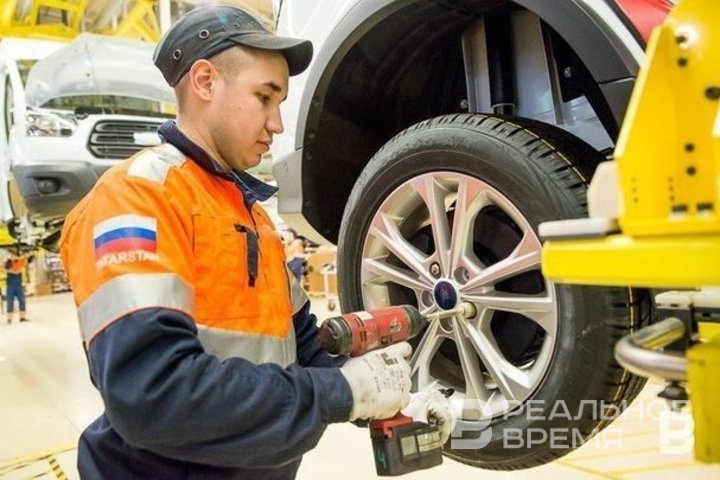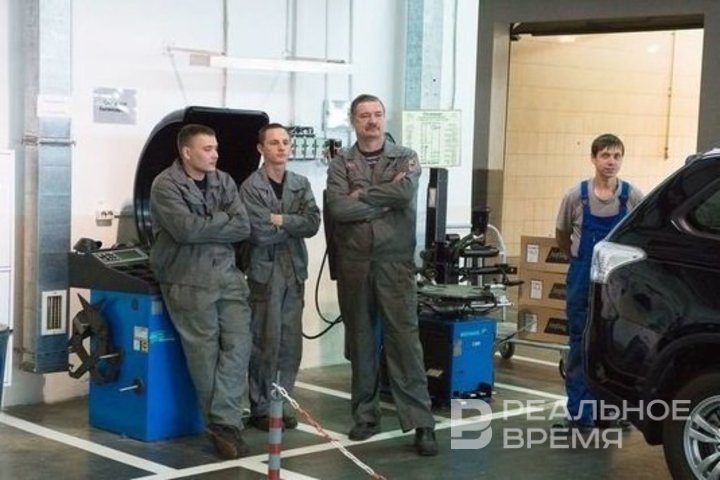Problems of large operators will lead to an increase in vehicle inspection cost in Tatarstan
Car inspection in the republic is forecast to rise in price by at least 7%

As the Tatarstan State Committee on Tariffs informed Realnoe Vremya, the maximum fees for this service will be made public within a month. The experts of the publication have no doubt that it will grow by at least 7-7.5% if, when setting the tariff, the republic will be equal to the regions where the new prices have already been published. About forecasts, factors affecting the cost of maintenance and the reasons why it is growing rapidly — in our material.
“They will be made public within a month”
Stavropol Krai, Tyumen region, Rostov region and Amur region, as well as the Jewish Autonomous Region became the leaders of the campaign for the annual indexation of tariffs. Samara region and the Republic of Mordovia have prepared and published draft new tariffs. Technical inspection there will cost by 7.3-7.5% more expensive than in 2024.
In Tatarstan, tariffs increased by 11.9% in 2024. For example, a technical inspection for a passenger car has risen in price from 913 to 1022 rubles, and a diagnostic card for vehicles for the transportation of dangerous goods — from 2545 to 2848 rubles.

The annual increase in tariffs is due to the order of the Federal Antimonopoly Service. It must take into account the data of the operators on their expenses, on the basis of which an economically reasonable tariff is calculated, but if less than 50% of the operators of the region send the data, the indexing is carried out by the government of the regions. In 2023, it was carried out in most regions, this year the same situation is developing, a number of regions have already reported that operators have not sent information about costs, and tariffs will be indexed by inflation.
The Tatarstan State Committee for Tariffs did not name specific figures for 2025 to Realnoe Vremya, and they also kept silent about whether the operators provided their data.
“The maximum amount of payment for technical inspection from January 1, 2025 will be made public within a month," the department reported.
“We must proceed from the cost of a standard hour”
“Today, the cost of technical inspection of vehicles does not allow the industry to develop normally, and businesses are not interested in investing money in this industry," said Maxim Burdyugov, chairman of the Union of Technical Inspection Operators. “It is necessary to set the cost of this service based on the cost of a standard hour on average in the region. For example, in Moscow, Moscow region, the cost of vehicle diagnostics is on average about 3.5-4 thousand rubles.

Burdyugov stressed: at the same time, diagnostics is carried out on more than 50 points, requirements and mandatory safety requirements. This is good from a safety point of view, but expensive for inspection operators, he explained, since complex diagnostic equipment, which is not available at all service stations, requires checks, repairs and periodic replacement.
He also noted that the cost of technical inspection cannot be the same in the regions. For example, the maintenance of a technical inspection point in the northern regions is much more expensive than in the southern regions, since heating costs are strikingly different.
The bigger, the more unprofitable?
Two circumstances may affect the cost of inspection, and therefore the marginal tariffs for this service:
— starting from October 1, 2024, vehicle inspection services provided by technical inspection operators in accordance with the law are excluded from the list of operations not subject to VAT taxation. From this date, the sale of such services is subject to VAT at a rate of 20%. As a result, accredited inspection operators, who keep full accounting records under the general taxation system (OSN), have lost 20% of income since October 1, 2024;
— from January 1, 2025, organisations and entrepreneurs applying the simplified taxation system (USN), whose income for the previous year did not exceed 60 million rubles, also become payers of value added tax (VAT).
Marat Yarmiev, ex-head of Tatarstan's largest inspection operator Tattekhcontrol JSC, a member of the working group developing changes to regulatory documents related to inspection, believes that this is the cost item that most small inspection operators will not be affected by.

Tattekhcontrol JSC is one of the largest inspection operators in Tatarstan. According to the SPARK service, the revenue of this company in 2023 amounted to almost 172 million rubles, and net profit — 38.6 million rubles.
Realnoe Vremya contacted Tattekhcontrol JSC with a telephone request about the potential costs associated with the new conditions of the inspection services market and innovations in tax legislation, as well as about the wishes for the maximum tariff for this service for 2025. However, the company's CEO, Yuryi Stavnichenko, declined to comment.
Hope for secondary market
From 2021, private car owners must undergo maintenance only in case of registration and re-registration of cars older than four years, as well as when making changes to the design of the vehicle. And the situation in the market of inspection services, according to Yarmiev, is aggravated by the fact that after the abolition of mandatory inspection for passenger cars in personal use by citizens, this market has significantly narrowed.

However, the opinion of Maxim Kadakov, editor-in-chief of Za Rulem magazine, was published in the media, who believes that an increase in recycling rates from October 1 will lead to an increase in prices for new cars, and this may lead to an increase in sales in the secondary market, therefore, the number of re-registrations of old cars and the demand for inspection services will increase it will increase. All this should theoretically revive the situation in the market of maintenance services and to some extent compensate for the losses of operators.
From a security point of view
Marat Yarmiev is convinced that it is necessary to return to the practice of mandatory technical inspection, which was cancelled for personal passenger cars due to the fact that it turned into a profanity when both some operators and insurance agents traded documents on passing the inspection without any real inspection. And the point is not only and not so much in the loss of income of operators, he says:
“The inspection turned into a fiction, but the working group, of which I was a member, prepared a new bill, where everything was taken into account. Yes, diagnostic cards were sold, and probably only 20 percent of the cars actually stopped by for inspection. But even when the traffic police was engaged in the inspection, and everything was much more stringent, and then there were loopholes.… However, it is about safety! It's one thing when 10% didn't visit, and 90% did and checked cars, and another thing when it turned out the other way around, and then they stopped coming at all.

Now, Yarmiev says, the Russian fleet is aging for objective reasons and will be updated more slowly, and new cars often enter parallel imports in an incomprehensible state, and this will inevitably affect safety. He also noted that it is difficult to hope to get objective statistics on accidents caused by the unsatisfactory condition of the car — it is easier for state traffic inspectors who arrived at the accident to indicate its cause in paragraph 10.1 of the Traffic Rules and record that the driver did not choose the correct speed limit and did not take into account road conditions, rather than look for the cause in the form of a technical malfunction.
“The draft bill [on technical inspection] that we developed was excellent, it remained to be brought to mind, and instead we are now conducting an experiment — a very bad, dangerous experiment," he concluded.